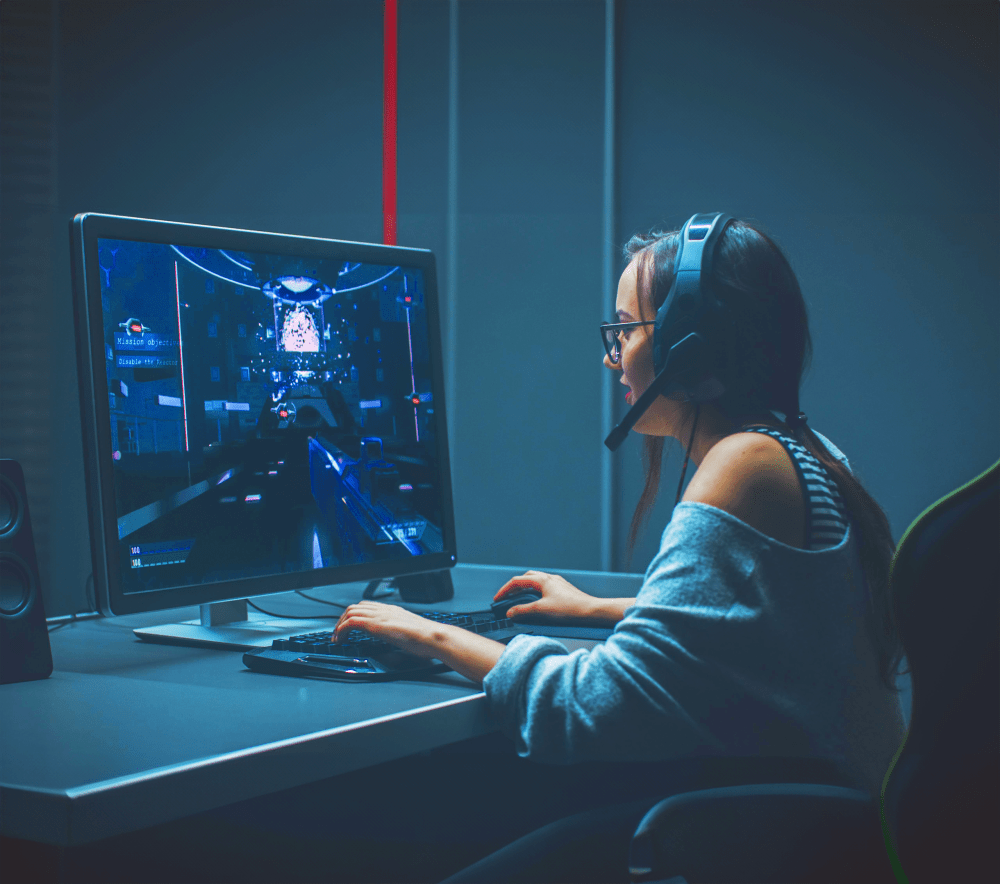How to keep your personal information secure in online games

Today, online gaming has become a form of global entertainment, allowing us to interact and compete with other players over the internet, attracting millions of users of all ages and from all parts of the world.
With the diversity of platforms such as PC, consoles or mobile devices, virtual interaction has expanded greatly, these games not only serve as a source of fun, but also as a means to socialise and bond with people from different places. Both for older and especially for those of us who are younger, it has become one of the most popular forms of pastime and entertainment, creating communities and shared experiences.
However, the more we venture into virtual worlds to explore, compete and connect with other players, it is crucial to be aware of the importance of protecting our personal and financial information as cybercriminals are continually looking for vulnerabilities to exploit, and online games offer ample opportunities for illicit activities. The consequences of weak security can have a huge impact from identity theft to financial fraud, which is why I believe it is essential to have the knowledge and tools in place to keep intruders at bay so that we can enjoy online gaming with peace of mind and security.
Before we continue, it is important to know what risks we face when playing online:
Malware and viruses
Searching for cheaper or free versions of games from unofficial sites involves the risk of unknowingly downloading viruses and malware. As does accessing cheat codes or buying products through third parties.
Identity theft
Cybercriminals collect identifiable information to build profiles of potential victims. One of the potential dangers of playing online games with strangers is the chat function, which allows you to talk to other players. Criminals can use this feature to collect sensitive information.
Doxing
If hackers obtain your personal data, they could publish it on the internet without you being able to anticipate it, which is known as doxing for the purpose of punishing, intimidating or humiliating the victim. There are many reasons behind such attacks, including having a bit of fun online without considering the damage inflicted, dispensing justice (sometimes wrongly), harassment, and even the profit motive.
Spyware
Occasionally, players can become victims of spyware attacks, especially if they are dealing with a dodgy online gaming operation. Spyware is about monitoring a person's online activity without their knowledge. If this information is recorded, it can be sold to third parties, resulting in a breach of privacy.
Data leaks
Hackers can attack game publishers directly. If they manage to gain access to a publisher's systems, they can steal vast amounts of information, from source code to the games themselves and personal information stored in user accounts.
Cyberbullyng
Occasionally, a user may experience abuse by other players. In addition to humiliating victims, cyberbullies may try to manipulate them into sharing personal information that can then be used against them.
Once we have identified the possible risks, here are some considerations to take into account in order to protect our information.
Download only from official sites:
Use official sites to download your games, create your accounts and download updates, thus avoiding the installation of malware on your computer.
2. Create dedicated e-mail accounts:
Online video games require you to create an email account. It is best to create a completely new one and not include personal information such as your real name, address or date of birth. Game accounts can be targets for theft, so you can lose your progress, virtual items and money invested in the game.
3. Use strong passwords:
Use unique and strong passwords for your game accounts and platforms. Avoid using obvious or easy-to-guess passwords. Consider using a password manager to keep your passwords secure or apply additional protection measures using two-step verification to add an extra layer of security to your account.
4. Adjust security and privacy settings:
If your account allows it, adjust your privacy and security settings to prevent third parties from accessing your profile, viewing your progress or contacts, etc. This will minimise the chances of an attacker looking into your account.
5. Don't trust just anyone:
Cybercriminals will pose as administrators or friendly users, so be wary of anyone who tries to get your details, credentials or offers you a deal that is too attractive.
6. Use official payment mechanisms
Some users may want to make trades or deals outside of official platforms, which can end up in a scam attempt.
7. Check your account activity
Regular checks will help you detect unauthorised access attempts or suspicious activity.
8. Do not open suspicious links or attachments
Whether they are emails or in-game notifications, via SMS or instant messaging applications. These are likely to be attempted social engineering attacks.
9. Protect your device
Keep your device updated to the latest version and be careful where you surf and keep your computer's protection measures, such as anti-virus and firewall, activated.
10. Use a secure network
Always use a known secure connection to play safely. Avoid connecting to unsecured open Wi-Fi networks when playing games. Use a virtual private network (VPN) if necessary to encrypt your connection and protect your data.
In short, staying safe in online gaming requires us to maintain a proactive and conscious approach to our digital security. By following these tips and being aware of potential risks, you can enjoy a safe and enjoyable gaming experience. Remember to always play responsibly and respectfully with other players.
Author: Adrián Sánchez Fernández